Home>Garden Essentials>Garden Plants>What Is The Best Fertilizer For Roses: Your Ultimate Guide

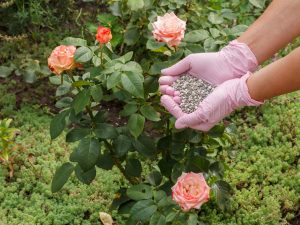
Garden Plants
What Is The Best Fertilizer For Roses: Your Ultimate Guide
Modified: December 6, 2023
A common question among gardeners is, “What is the best fertilizer for roses?” Take a deep dive with us into the different types and what makes them work.
(Many of the links in this article redirect to a specific reviewed product. Your purchase of these products through affiliate links helps to generate commission for Storables.com, at no extra cost. Learn more)
The peak of summer is here, which means your beloved roses are about halfway through their blooming cycle. These beautiful plants will be blossoming well into fall, and it’s important to keep them happy and healthy throughout. Using plant food is a good first step, so it’s time to ask: What is the best fertilizer for roses? We got you covered so keep reading!
What Is Rose Fertilizer?
Rose fertilizer is a specialized mixture that increases the fertility of the soil, thereby helping your lovely flowers grow. It comes in two main forms. First is a chemical compound specifically formulated with different elements in a lab. The second is a natural byproduct from the decay of certain foods or other waste.
Many different kinds of rose fertilizers exist under these two forms, and many types aim to do different things. It all depends on the ingredients used and the ratio of resulting elements. Some may aid one part of the plant while others encourage growth in a different area. We’ll be exploring these specifics a little later.
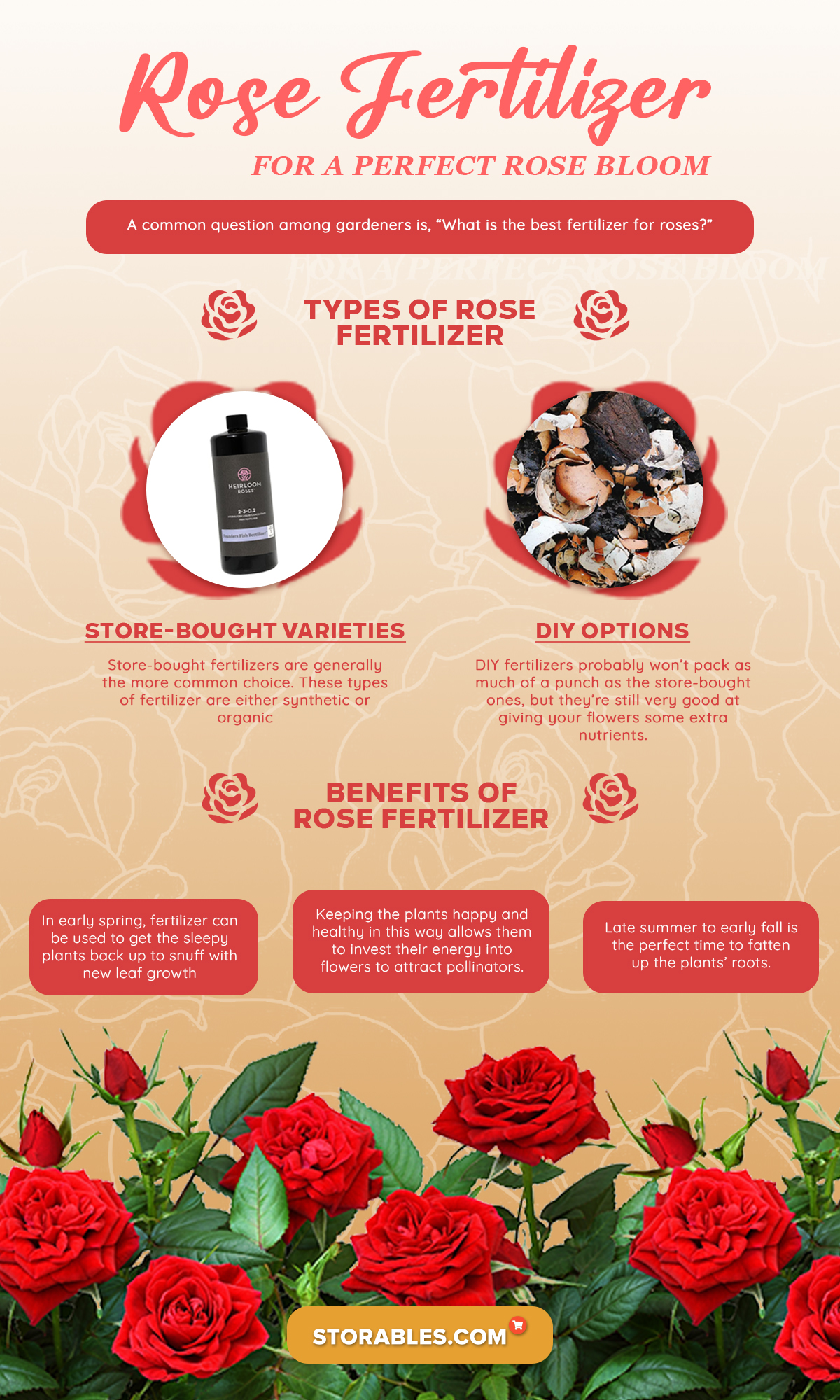
Read also: 15 Best Organic Rose Fertilizer for 2025
What Are the Types of Rose Fertilizer
Before we proceed, let’s take a more in-depth look into the two main types of rose fertilizers.
Store-Bought Varieties
Store-bought fertilizers are generally the more common choice. They’re easy to pick up and have all their nutritional information displayed to make choosing straightforward. These types of fertilizer are either synthetic or organic, with the difference lying mainly in their ingredients. Synthetic fertilizers are specially formulated in a lab with pure nitrogen, phosphorus, and potassium compounds. On the other hand, organic fertilizers will have more natural ingredients such as manure and coconut fiber.
DIY Options
DIY fertilizers probably won’t pack as much of a punch as the store-bought ones, but they’re still very good at giving your flowers some extra nutrients. Used tea leaves, crushed eggshells, and ground-up banana peels are some of our personal favorites. Coffee grounds are also a popular option and can be used in small quantities. There’s a host of options out there that can be found with a quick search.
The Benefits of Fertilizing Roses
The main benefit of fertilizing roses is the effect it has on their health. Roses can be suited to all sorts of places and climates, but they’ll always be happier with a little flower food. In early spring, fertilizer can be used to get the sleepy plants back up to snuff with new leaf growth. Late summer to early fall, on the other hand, is the perfect time to fatten up the plants’ roots. Keeping the plants happy and healthy in this way allows them to invest their energy into flowers to attract pollinators, making for a beautiful display.
Read also: 10 Best Rose Food Fertilizer for 2025
What Is the Best Fertilizer For Roses For Your Garden
Now, you may be wondering what the best rose fertilizer could be. The truth is that a lot of it depends on time and place. This section aims to give you a good rundown of what fertilizer would suit your garden and the soil you’ll be enriching.
Testing Your Soil
One interesting step you may want to take before deciding on a fertilizer is testing your soil. Knowing the general state of your flower bed will help you determine how well your roses can flourish. Certain kinds of soil just aren’t made to harbor roses, and the plants will be stunted no matter how much fertilizer you use.
Soil Types
Ideally, roses most enjoy warm, sandy clay soil with good aeration and water retention. Roses thrive in slightly acidic to neutral (6.0-7.0) pH levels. Soils that are only slightly outside this range can be adjusted, but very acidic or alkaline soils may be too much of a hassle to alter. In those cases, it may sometimes be best to just buy soil of the correct pH and pot your roses.
Seasons and USDA Zones
Seasons-wise, USDA Zones 7, 8, 9, and 10 are friendly to almost all rose breeds. Hardier roses will survive colder and warmer zones, but you’ll need to take extra care of them. A day temperature between 18°C to 25°C and a night temperature not going below 10°C are particularly ideal for rose blooming. A layer of mulch on the top will help the soil by protecting it from sudden temperature variations.
Choosing a Store-Bought Rose Fertilizer
With your soil taken care of, it’s time to find out what is the best fertilizer for roses. You can better understand many store-bought fertilizers by taking note of their NPK ratios. NPK stands for nitrogen (N), phosphorus (P), and potassium (K). Each bag of manmade fertilizer will rely mainly on these three elements, with a few extra nutrients thrown in like sulfur, boron, iron, and more.
The NPK numbers on the bag generally show the ratios of the three main elements. A bag with, say, a 10:5:5 ratio will have more nitrogen than phosphorus and potassium. Each element does its part in the growth process. Nitrogen is great for getting leaves to grow, phosphorus strengthens and encourages buds and roots, and potassium helps keep the plant in tip-top health for winter.
A good general fertilizer for your rose bushes is one with an NPK ratio of 1:0.8:1.8. During the spring to early summer months, you may want a little more nitrogen to encourage the leaves. Meanwhile, more phosphorus would be excellent during the late summer to the early fall season, since strong roots will help the plant through winter. You may wish to limit your fertilizing in late fall though. New sprouts will be killed by the frost and leave the plant vulnerable to damage.
Choosing a DIY Rose Fertilizer
For natural DIY fertilizers, you can use the general guidelines above to research which at-home ingredients you can use. For example, crushed banana peels help provide potassium to the soil, and used tea bags are great for roots. Also, if you have fish, freshwater aquarium water is chock full of micronutrients that your roses will love. In terms of what is the best fertilizer for roses already in your home, it really depends on what you have on hand.
How to Spread Rose Fertilizer
Before spreading your fertilizer, check to see how often it should be used. Most DIY fertilizers can be used often while many store-bought synthetic types can be applied much more sparingly. It really depends on the type of rose food you buy. Spreading rose fertilizer is also very dependent on the variation, but there are a few tips and tricks you can follow.
For instance, many solid fertilizers need to go straight into the soil. You’ll need to push aside any shorter plants to make sure none of the pellets get stuck in their leaves. Once the fertilizer is sprinkled on top, you can gently work it into the top few inches of soil with a hand fork or a trowel. Water the plant right after to activate the pellets.
For liquid fertilizers, reading the instructions is extra important. It’s easier to burn the plant’s roots with this type if it’s too concentrated. Get the right water to fertilizer ratio and use a spray or watering can to distribute it to the plants.
How to Attract Bees to Fertilize Your Roses
Recently, a group of researchers has found a new way to get your flowers to bloom early: bees! These clever insects have been observed nibbling on plant leaves, leading them to flower much earlier than expected. While they haven’t tested this on rose bushes yet, it certainly can’t hurt to have a few bumble bees buzzing around. They keep all your lovely flowers fertilized by spreading their pollen and encouraging more plants to grow.
Attracting them can be as simple as setting up a bee house and spritzing it with some bee house attractant. With a garden full of flowers and maybe a shallow bird bath for thirsty bees, it’ll be an attractive prospect for any scouts. Try to mount your bee house where it can get some warm morning sun. The side of a tree would be ideal, as this will also protect it from any wind or rain.
How to Protect Your Roses From Pests After Fertilizing
Unfortunately, not all insects are as helpful as bees. You’ll need to keep a careful watch on your roses in case bugs or other pests appear. Generally, insecticide can help a lot. However, if you’re worried that synthetic bug spray will affect you or the pets or children you have, you may want to try a more gentle DIY method.
Ants
If you’re battling ants specifically, you can try making a mix of one part peppermint oil to one part water. This concoction can be added to the base of a rose plant to discourage ants from bothering your blooms. It’s especially effective at keeping ants from wiping out the helpful insects that occupy your rose bush.
Read also: 15 Amazing Rose Fertilizer for 2025
Other Insects
A teaspoon of vegetable oil and baby shampoo in a cup of water can do wonders against mealybugs, spider mites, and a host of other creepy crawlies. Use a spray to coat the plant’s stem and leaves thoroughly and leave it on for a bit. After a few hours, you can wash it all out again. This should be enough time to affect the insects without harming the plant. You’ll need to reapply the mixture every five to seven days until the pest problem stops. If you have a sensitive rose, try to spot-test the mixture on a leaf or stem first. Interestingly enough, you can add two tablespoons of baking soda to a gallon of this mixture to address fungal concerns as well.
Frequently Asked Questions about What Is The Best Fertilizer For Roses
-
Read more: What Are Groundcover Roses
When is the best time to fertilize roses?
You’ll want to establish a good cycle for fertilizing your roses. Ideally, the first time you fertilize in a year would be early spring, when the first new leaves start appearing. Just make sure the frosty spring days are behind you. Following this, your cycle will depend on your location, plants, and fertilizer.
There are a lot of deciding factors, but generally, many off-the-shelf fertilizers work for about six months. Because of this, the next time you need to fertilize your roses may be well into the summertime. Although, do note that some gardeners prefer to fertilize after each bloom cycle. To do this, they reduce the fertilizer amount by half after each cycle until the middle of fall. You shouldn’t fertilize your roses too close to winter, as new blooms will only suffer from the cold.
-
What is the best natural fertilizer for roses?
Many types of natural fertilizers will work on your roses in different ways. Bone meal, for instance, is high in phosphorus, which encourages bud and root growth. In moderation, coffee grounds and used tea leaves speed up the plant’s growth while improving soil texture. The list just goes on from there. Try to figure out the results you want and work backward from there to find out what is the best natural fertilizer for your roses.
-
Should I fertilize roses?
Yes. Like many plants, roses will benefit from a good dose of fertilizer every so often. It serves as a sort of plant food, keeping them healthy and strong while they grow. With a happier rose bush come bigger, more vibrant flowers.
Conclusion
In summary, nutrient-rich fertilizer is great for encouraging your darling roses to bloom to their fullest. There are many types out there, from the ones you find on store shelves to the coffee grounds you save from your morning cup. We hope we’ve given you some good insight into what the best fertilizer is for your roses. Now, it’s up to you to keep them blooming.
Was this page helpful?
At Storables.com, we guarantee accurate and reliable information. Our content, validated by Expert Board Contributors, is crafted following stringent Editorial Policies. We're committed to providing you with well-researched, expert-backed insights for all your informational needs.
![[BioAdvanced] All-in-1 Rose Care Concentrate for What is The Best Fertilizer For Roses](https://storables.com/wp-content/uploads/2022/07/BioAdvanced-All-in-1-Rose-Care-Concentrate-for-What-is-The-Best-Fertilizer-For-Roses-265x300.jpg)
![[Miracle-Gro] Water-Soluble Rose Plant Food for What is The Best Fertilizer For Roses](https://storables.com/wp-content/uploads/2022/07/Miracle-Gro-Water-Soluble-Rose-Plant-Food-for-What-is-The-Best-Fertilizer-For-Roses-223x300.jpg)
![[Heirloom Roses] Founder’s Fish Fertilizer for Rose Flowers for What is The Best Fertilizer For Roses](https://storables.com/wp-content/uploads/2022/07/Heirloom-Roses-Founders-Fish-Fertilizer-for-Rose-Flowers-for-What-is-The-Best-Fertilizer-For-Roses-300x300.jpg)
![[SONKIR] 3-in-1 Soil Moisture, Light, and pH Tester for What is The Best Fertilizer For Roses](https://storables.com/wp-content/uploads/2022/07/SONKIR-3-in-1-Soil-Moisture-Light-and-pH-Tester-for-What-is-The-Best-Fertilizer-For-Roses-189x300.jpg)
![[Luster Leaf] Digital Soil Thermometer for What is The Best Fertilizer For Roses](https://storables.com/wp-content/uploads/2022/07/Luster-Leaf-Digital-Soil-Thermometer-for-What-is-The-Best-Fertilizer-For-Roses-118x300.jpg)
![[MySoil] Soil Test Kit for What is The Best Fertilizer For Roses](https://storables.com/wp-content/uploads/2022/07/MySoil-Soil-Test-Kit-for-What-is-The-Best-Fertilizer-For-Roses-300x209.jpg)
![[BerryandBird] Gardening Hand Fork for What is The Best Fertilizer For Roses](https://storables.com/wp-content/uploads/2022/07/BerryBird-Gardening-Hand-Fork-for-What-is-The-Best-Fertilizer-For-Roses-300x276.jpg)
![[SXBBSMC] Garden Trowel for What is The Best Fertilizer For Roses](https://storables.com/wp-content/uploads/2022/07/SXBBSMC-Garden-Trowel-for-What-is-The-Best-Fertilizer-For-Roses-300x269.jpg)
![[Homarden] Copper-Colored Watering Can for What is The Best Fertilizer For Roses](https://storables.com/wp-content/uploads/2022/07/Homarden-Copper-Colored-Watering-Can-for-What-is-The-Best-Fertilizer-For-Roses-300x276.jpg)
![[KIBAGA] Mason Bee House for What is The Best Fertilizer For Roses](https://storables.com/wp-content/uploads/2022/07/KIBAGA-Mason-Bee-House-for-What-is-The-Best-Fertilizer-For-Roses-234x300.jpg)
![[Donaldson Farms] Mason Bee House Attractant](https://storables.com/wp-content/uploads/2022/07/Donaldson-Farms-Mason-Bee-House-Attractant-79x300.jpg)
![[MUMTOP] Hanging Bird Bath](https://storables.com/wp-content/uploads/2022/07/MUMTOP-Hanging-Bird-Bath-147x300.jpg)
![[BioAdvanced] Rose Insect Killer Insecticide for What is The Best Fertilizer For Roses](https://storables.com/wp-content/uploads/2022/07/BioAdvanced-Rose-Insect-Killer-Insecticide-for-What-is-The-Best-Fertilizer-For-Roses-164x300.jpg)
![[Aquaphor] Baby Wash and Shampoo](https://storables.com/wp-content/uploads/2022/07/Aquaphor-Baby-Wash-and-Shampoo-300x300.jpg)
![[NaturoBliss] Peppermint Essential Oil for What is The Best Fertilizer For Roses](https://storables.com/wp-content/uploads/2022/07/NaturoBliss-Peppermint-Essential-Oil-for-What-is-The-Best-Fertilizer-For-Roses-201x300.jpg)
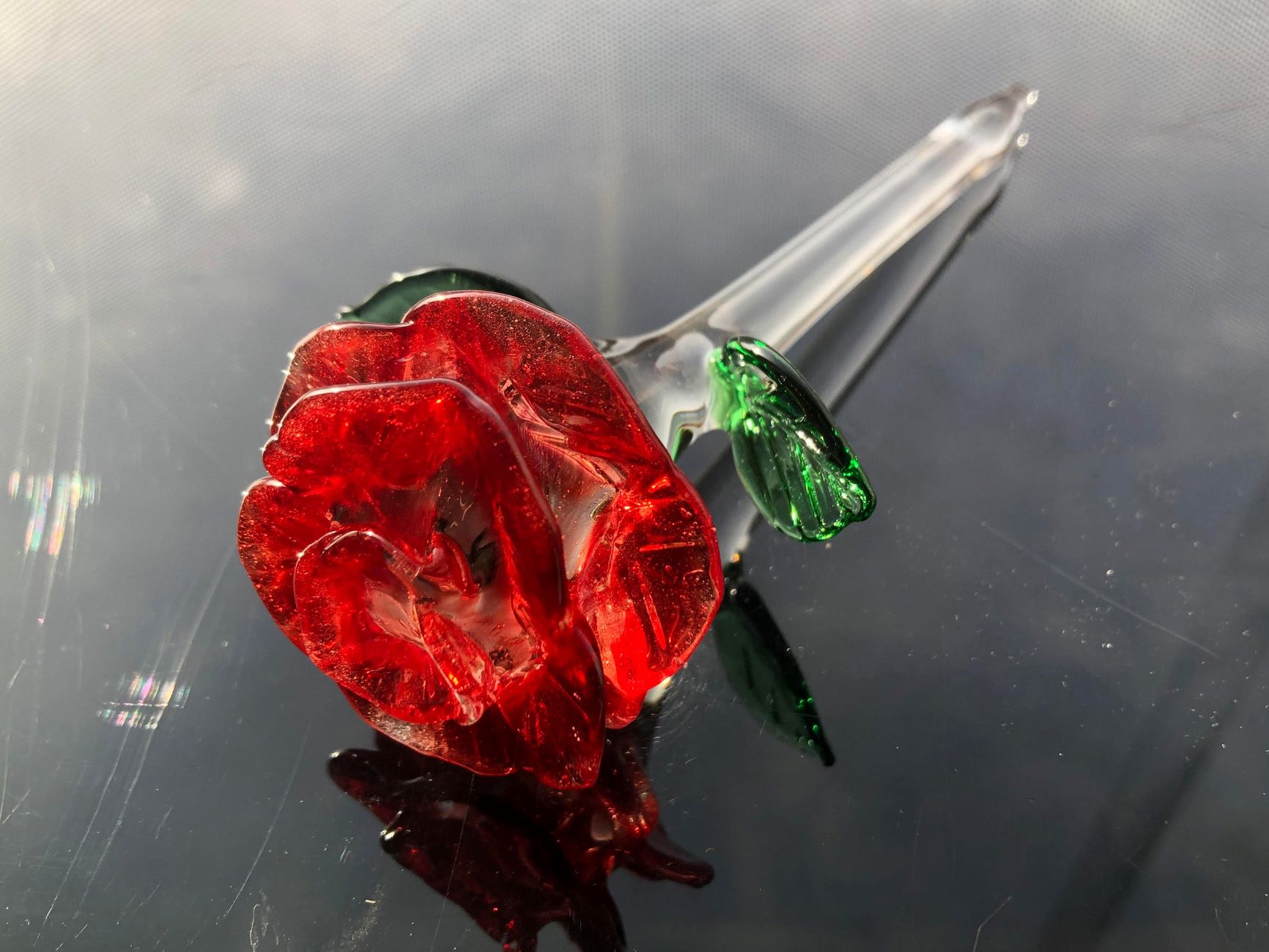
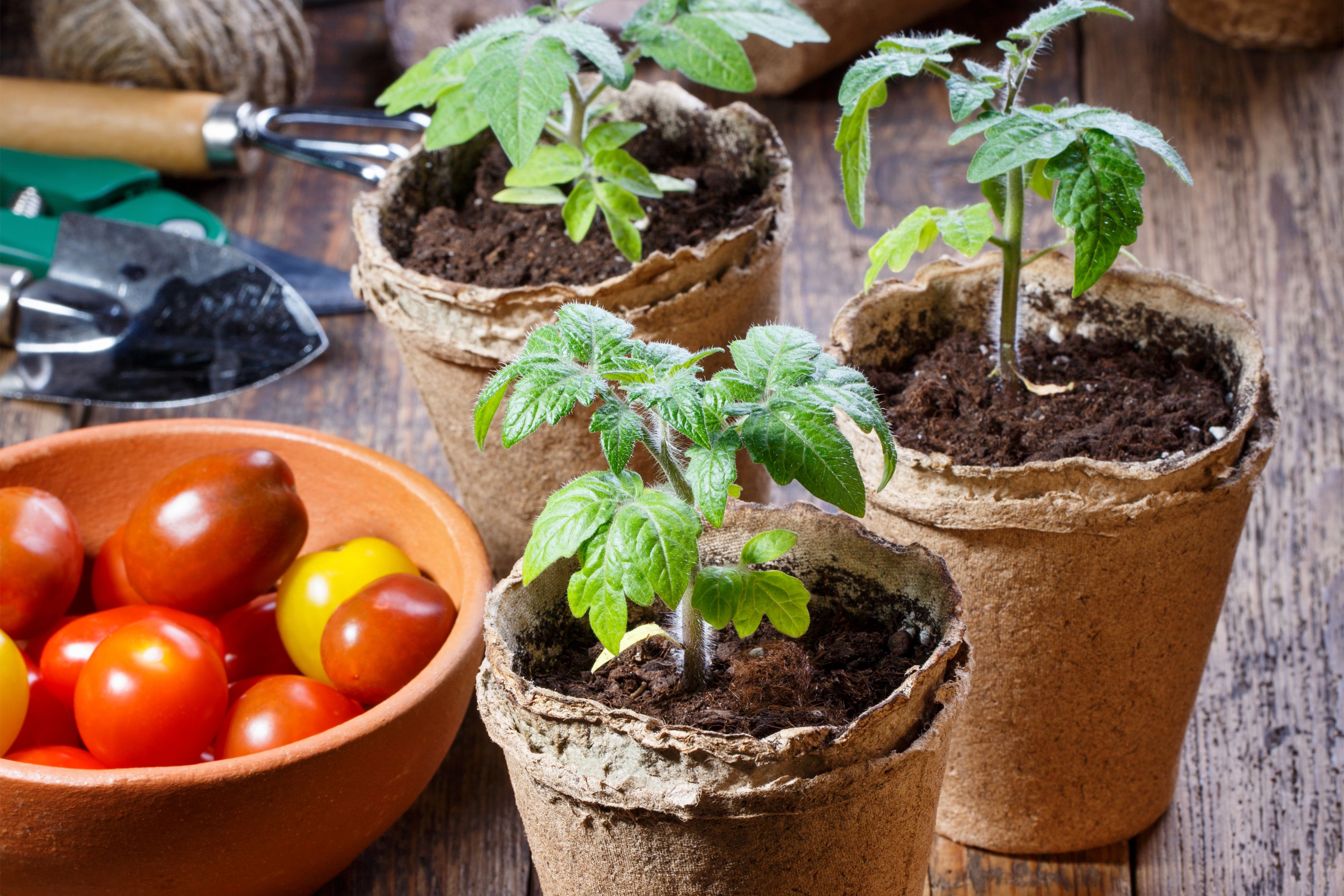
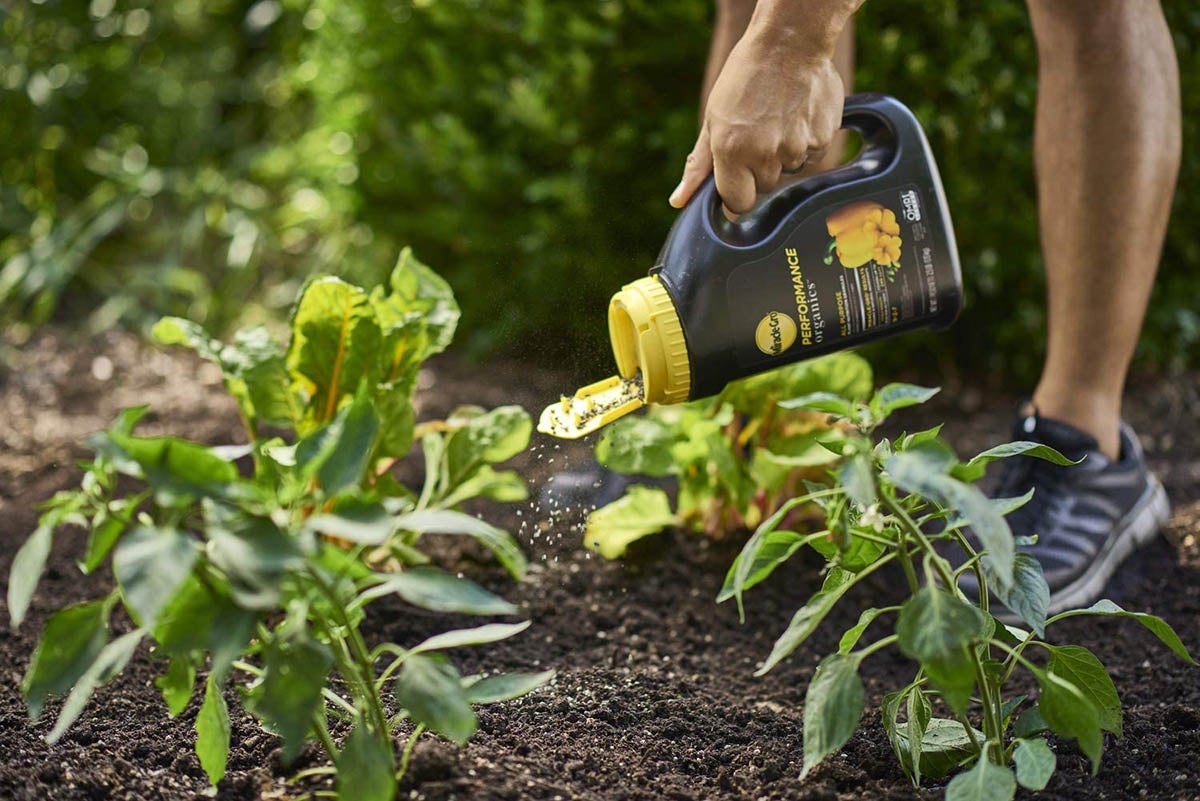
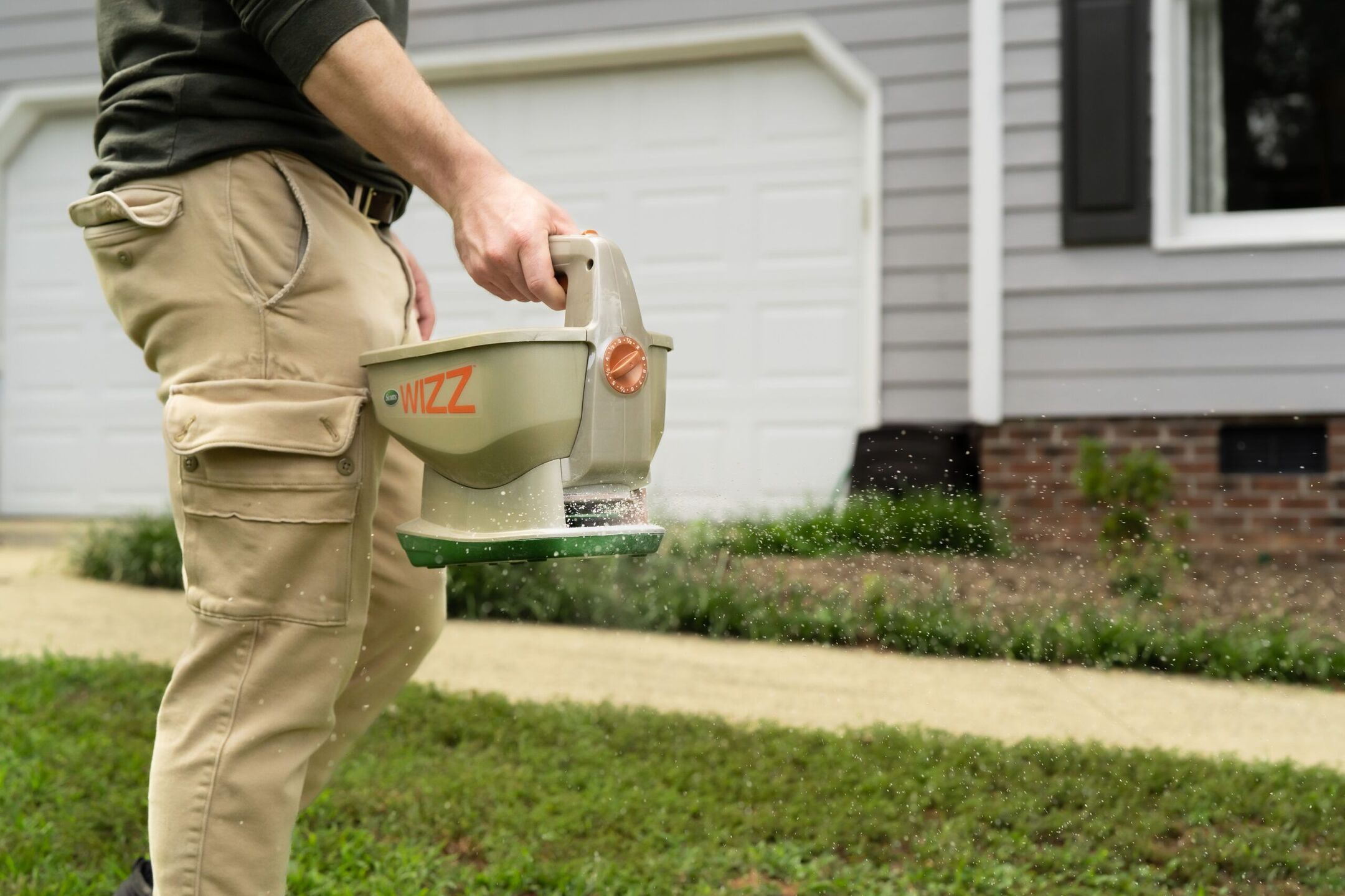
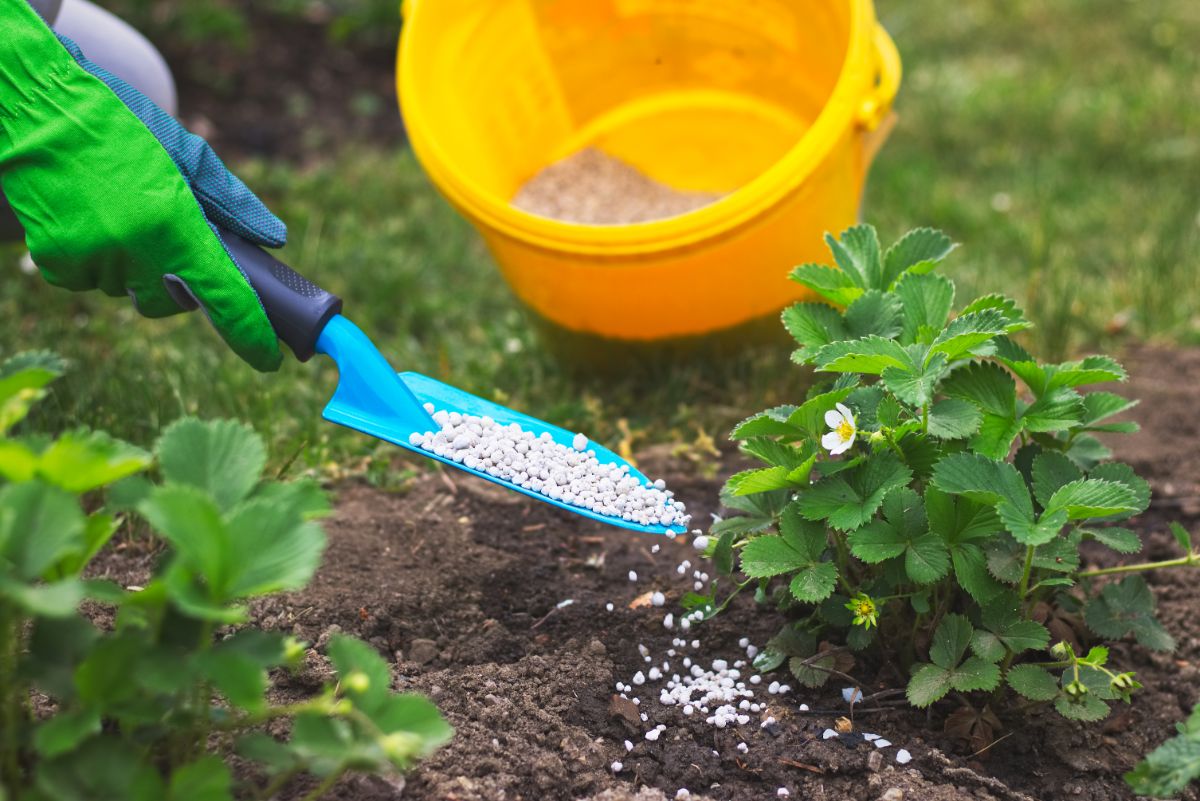
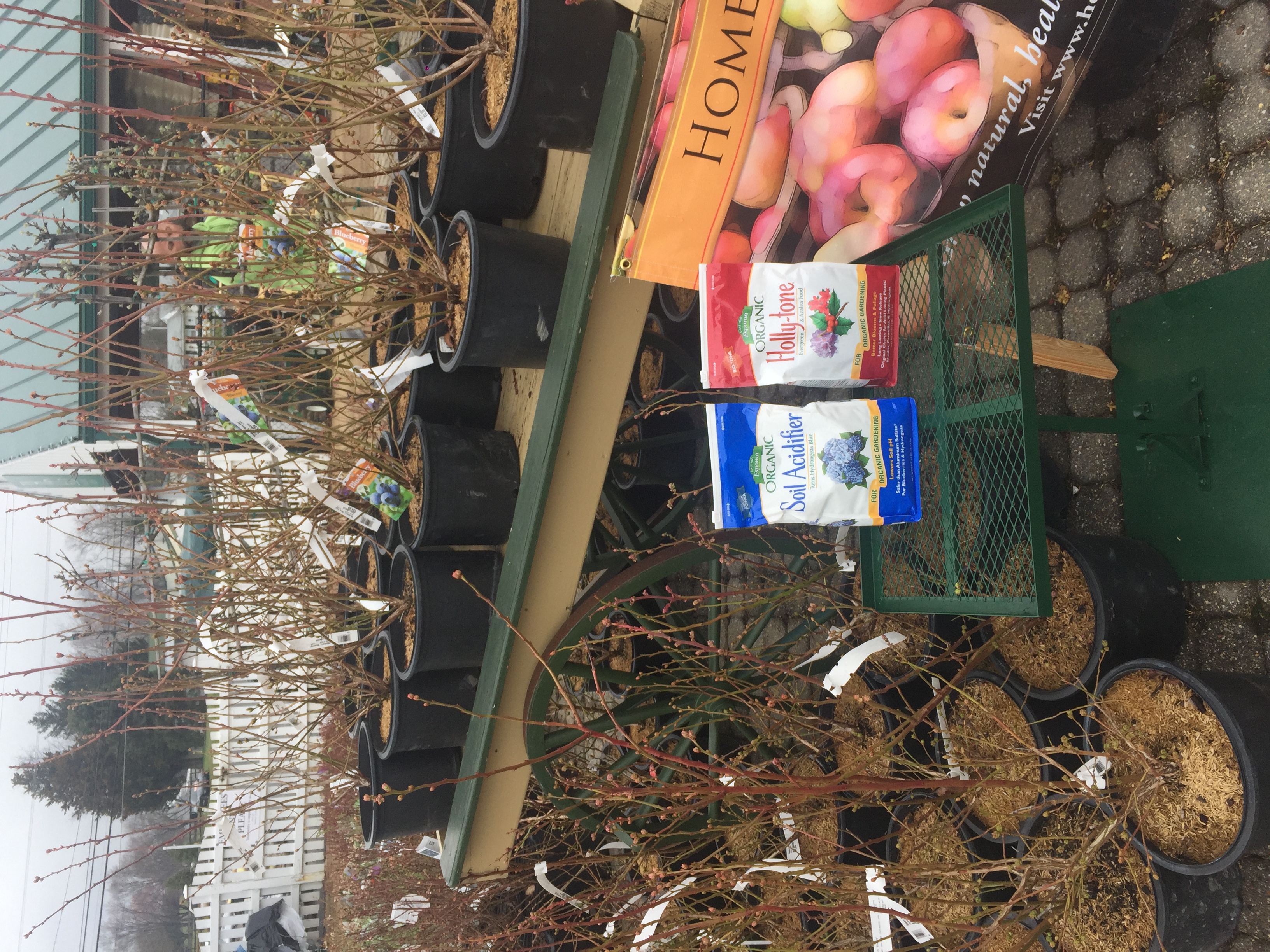
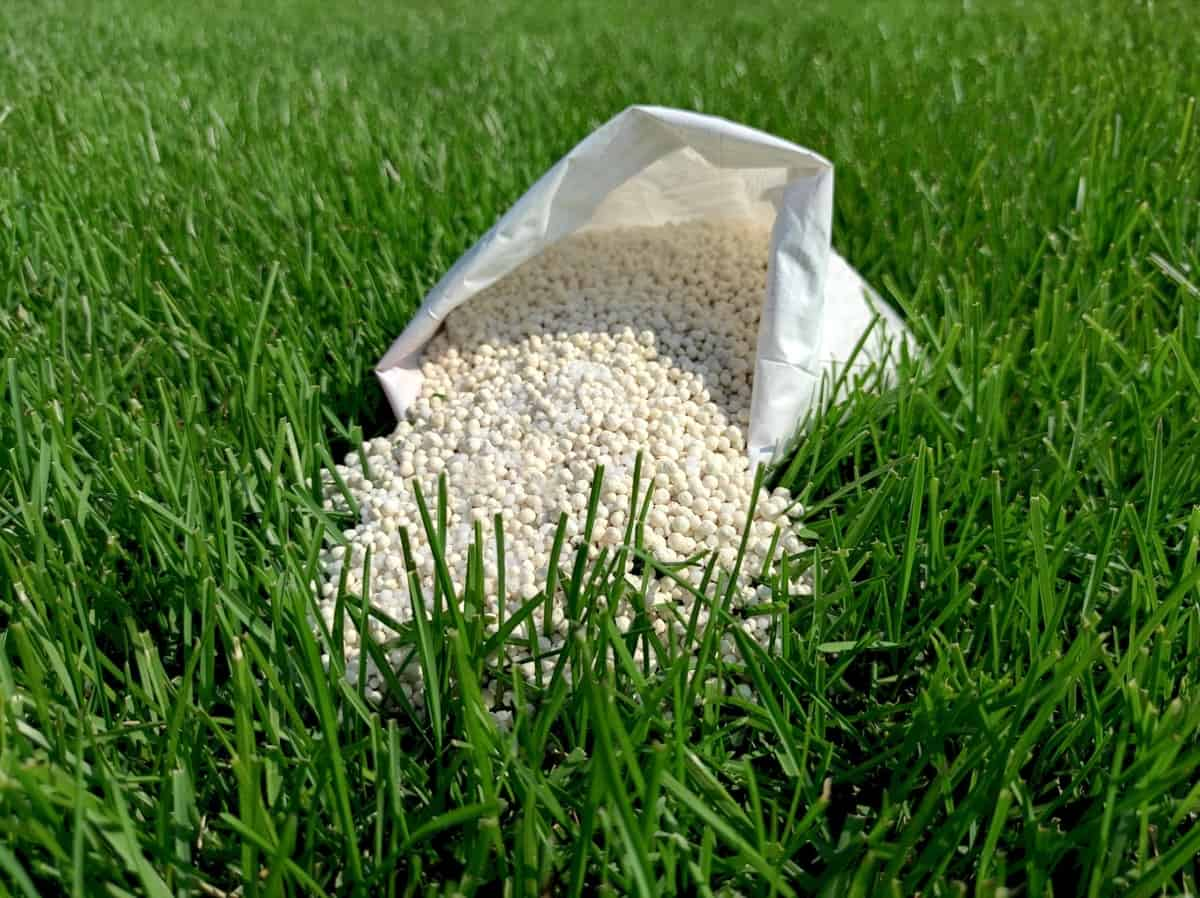
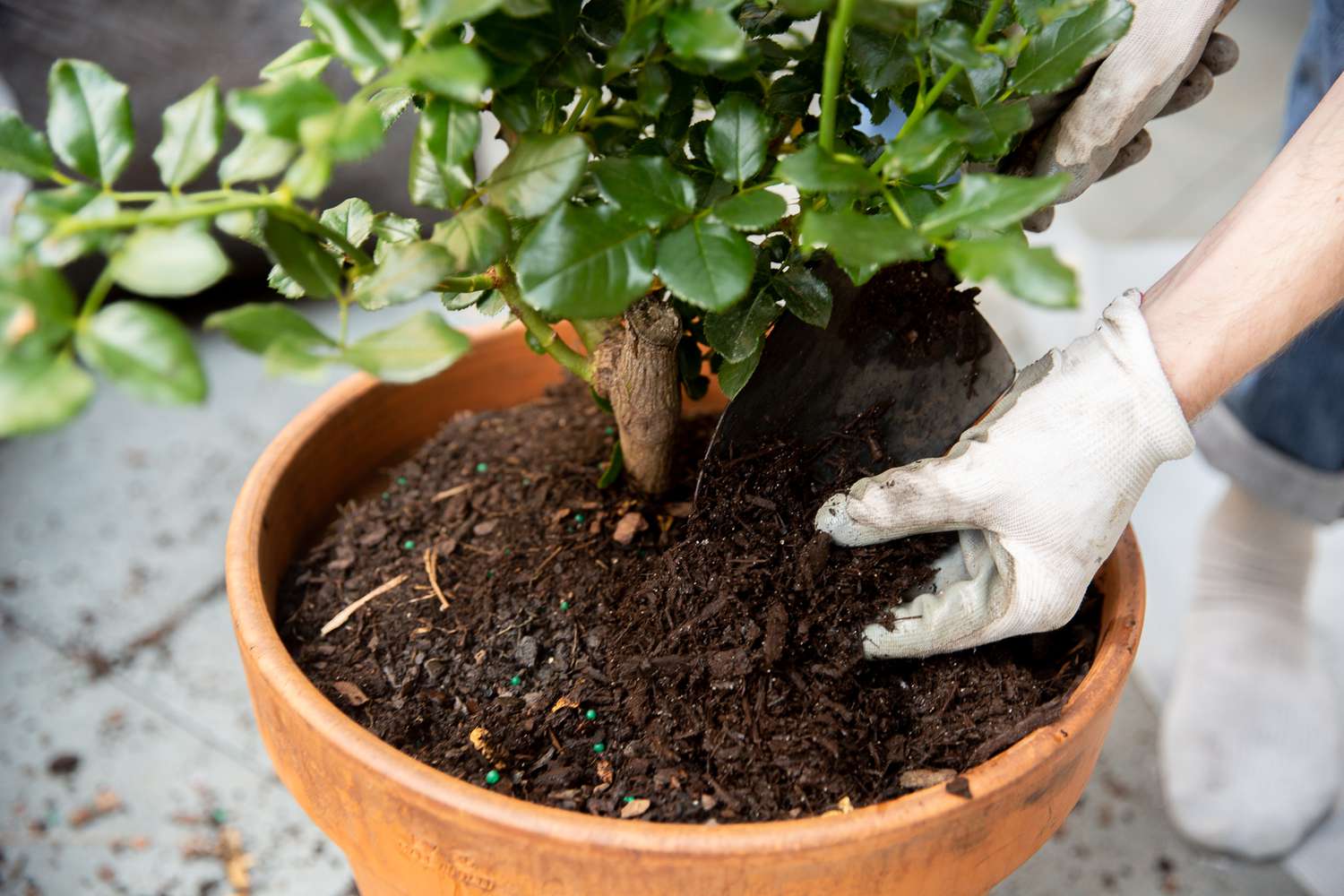
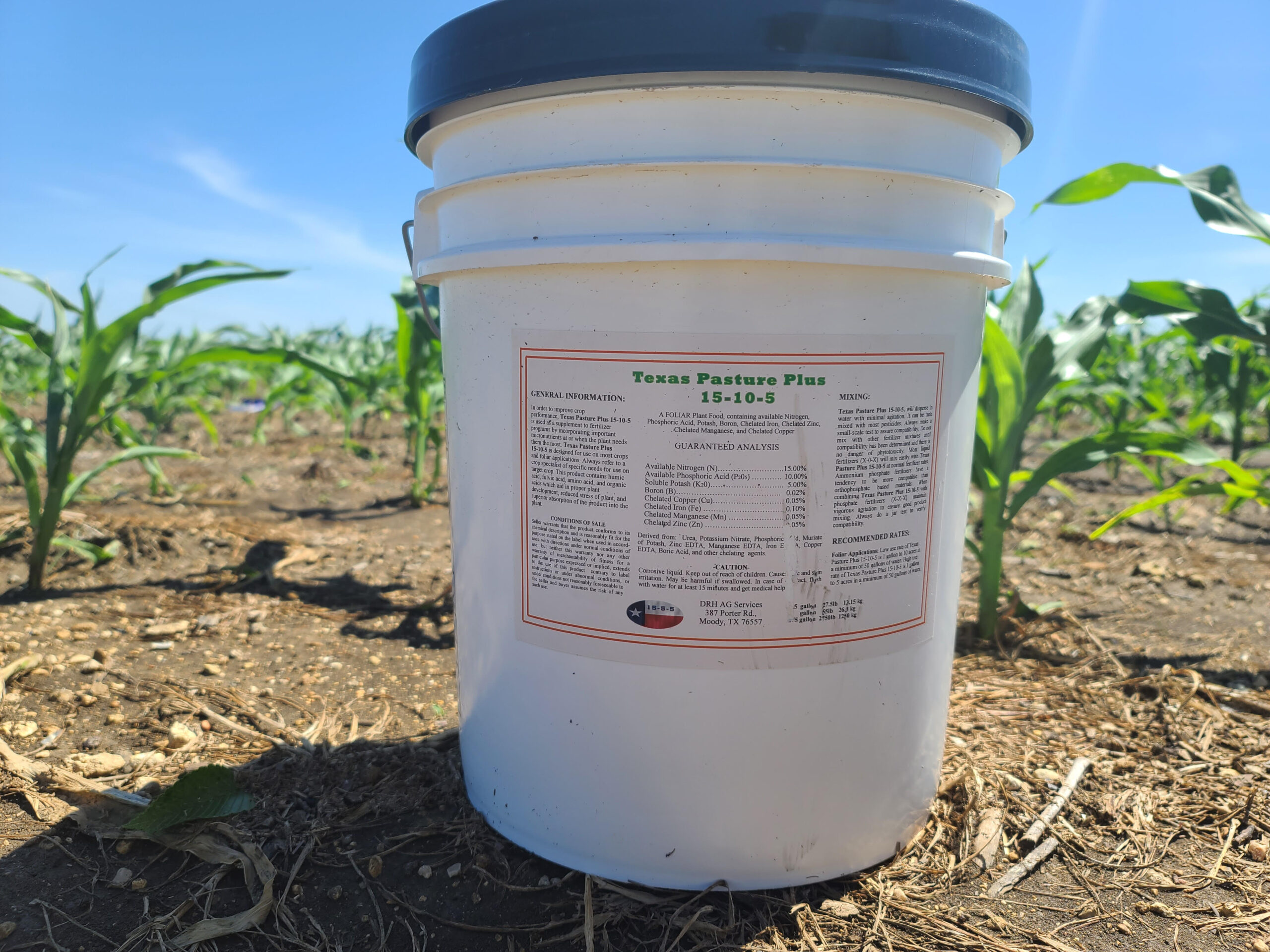
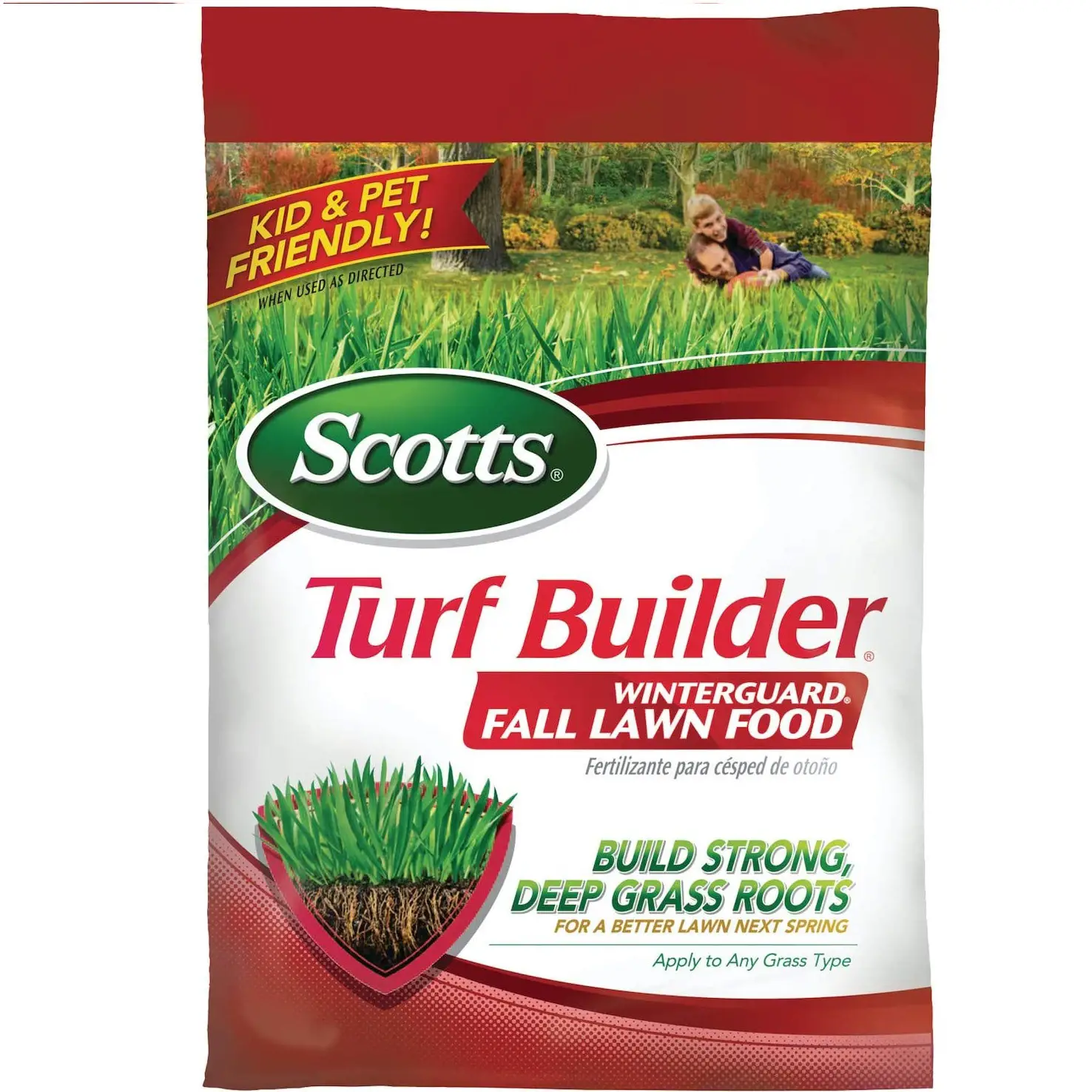
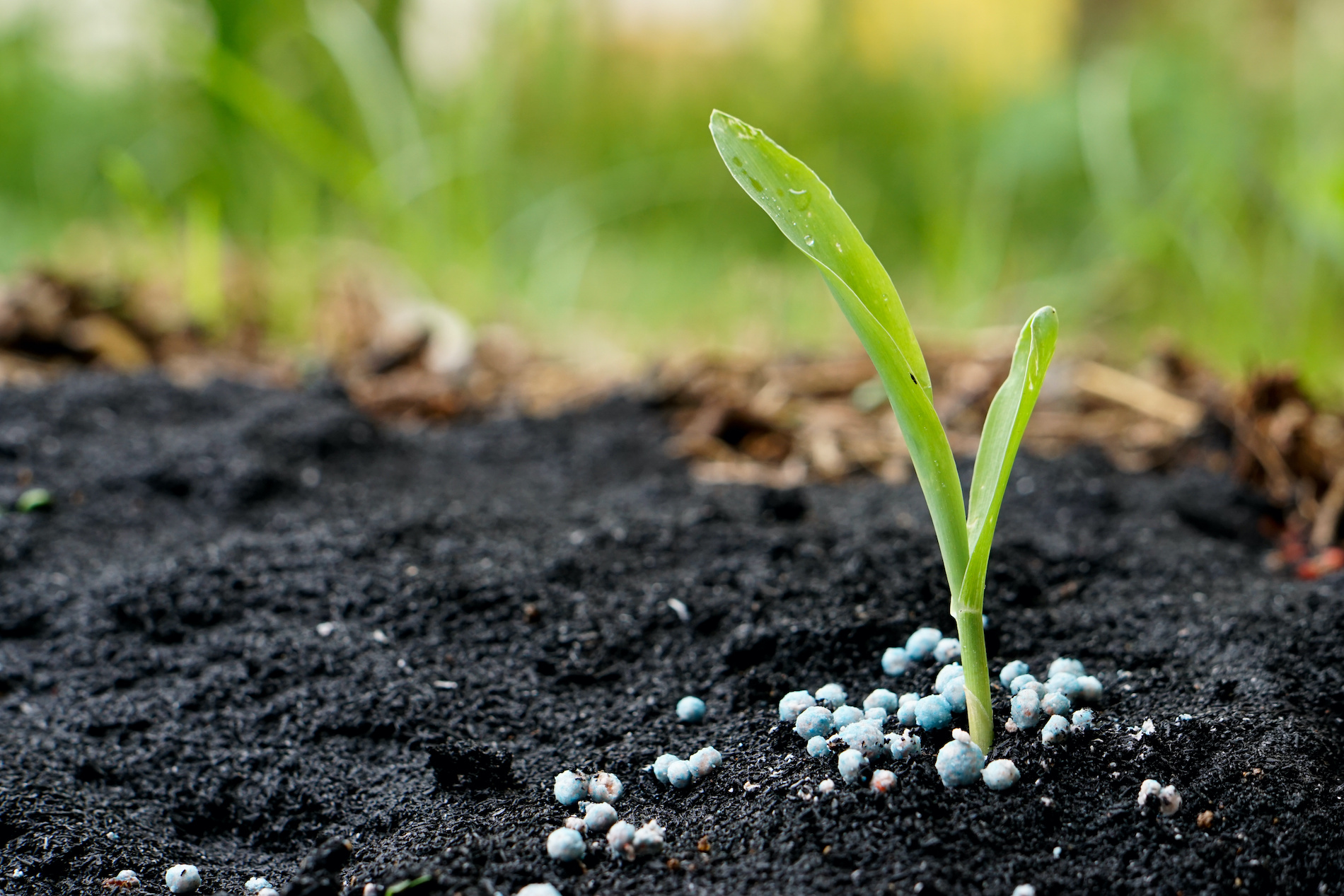

0 thoughts on “What Is The Best Fertilizer For Roses: Your Ultimate Guide”